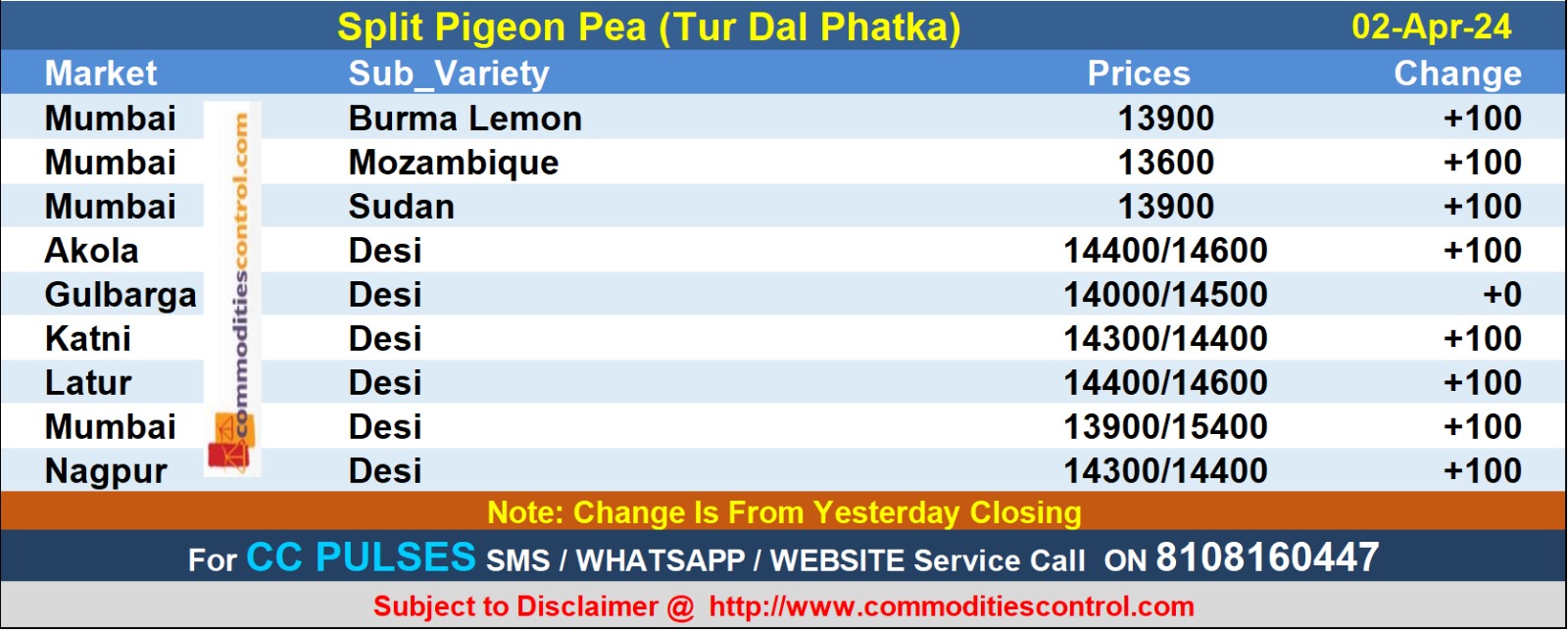Mumbai, 02 Apr 2024 (Commoditiescontrol):Tur prices have continued their upward trajectory in domestic Indian markets. This follows gains in the Burma market, reduced arrivals of desi tur in India after the Holi holiday, and a temporary trading pause due to the financial year-end. Additionally, sellers have become less active at current price levels.
The recent rise in Myanmar's rise in Tur prices is attributed to the Burmese government's revised exchange rate of 3160 MMK/dollar for export proceeds. In anticipation of this change, importers strategically held off selling, expecting better returns later. Additionally, Indian importers ramped up their purchases in Myanmar before the market closure for the water festival.
Local prices in Myanmar have reportedly increased by 160,000 MMK/Mt, while CNF India trade prices have risen by USD 50 per MT amidst reduced trade activity. The Chennai resale market has also seen an increase of USD 15 per MT.
Imported lemon and African-origin Tur prices in key Indian markets such as Mumbai, Chennai, and Delhi have remained firm, with increases of Rs 50-150 /quintal.
Tur International Prices In Key Indian Markets:

Tur prices in Maharashtra's major mandis were reported sharply higher, with the exception of Nagpur and Amravati where prices remained stable. Prices increased by Rs 100-300 per quintal due to low arrivals and stockists' reluctance to sell at current rates. Average buying activity is also contributing to the price increase.Prices increassed in other states as well tracking gain in imported Tur and desi Tur in Maharashtra.
Spot Raw Tur Bilty And Mandi Prices In Key Indian Markets:

Tur dal prices continued their upward trend, trading higher by Rs 100 per quintal due to an increase in raw tur prices. However, the price gain in tur dal was relatively lower compared to raw tur.
Spot Raw Tur Dal Prices In Key Indian Markets:

The trend of Tur prices is expected to depend on the pace of arrivals in the domestic market and the demand for Tur dal at the current high prices. Another decisive factor will be the supply of Rabi pulses in the open market. So far, the arrival of Rabi pulses has been slower than expected, and the government's procurement efforts have been lackluster. As a result, Rabi pulses like masur, matar, and chana have been trading within a narrow range, indirectly supporting higher Tur prices. Additionally, a slowdown in matar imports will provide overall support to the pulses market, including Tur.
(By Commoditiescontrol Bureau; +91-9820130172)